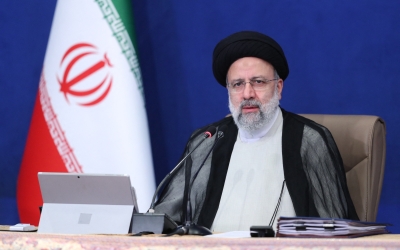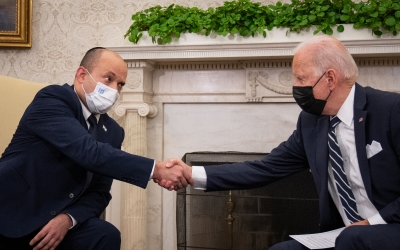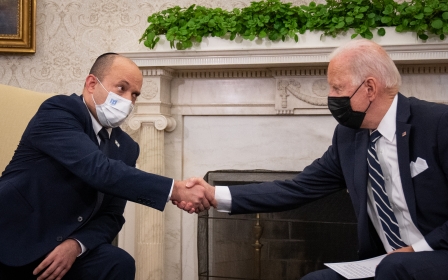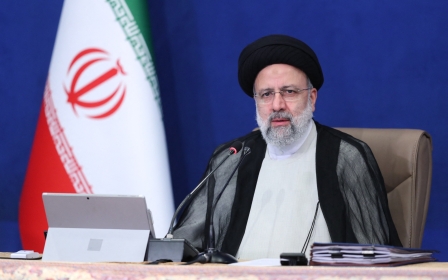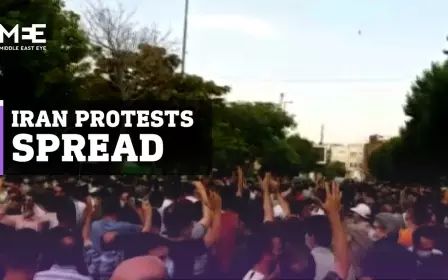Iran: Khamenei says Biden has same demands as Trump on nuclear issue
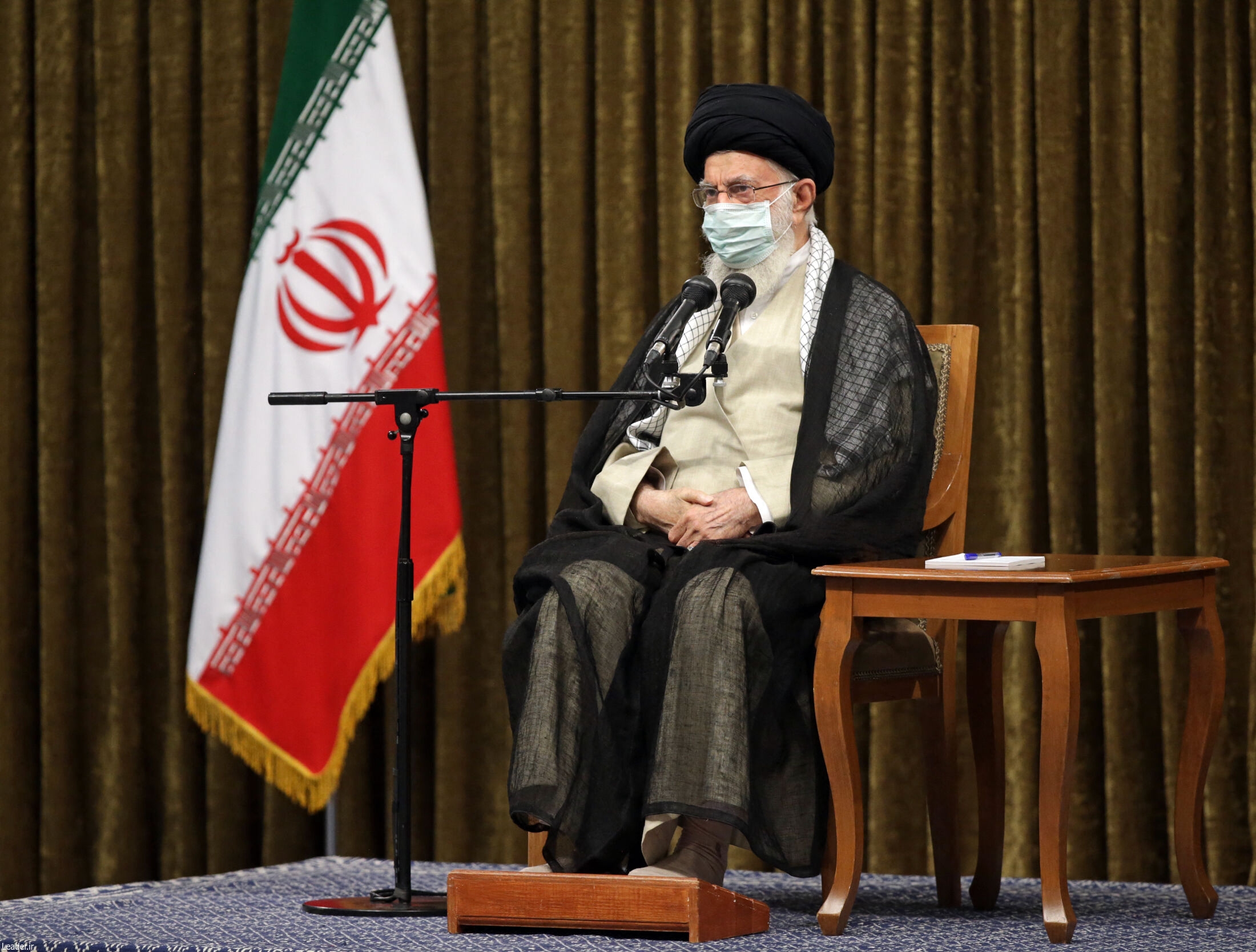
Iran's supreme leader Ayatollah Ali Khamenei on Saturday accused US President Joe Biden's administration of making the same demands as his predecessor Donald Trump in talks to revive a nuclear accord.
Khamenei's remarks came after a top Iranian security official accused Biden of illegally threatening Iran after he said he may consider other options if nuclear diplomacy with Tehran fails.
The multilateral deal that offers Iran relief from sanctions in return for curbs on its nuclear programme was torpedoed by Trump's decision to withdraw the United States from it in 2018.
The most recent round of negotiations between Iran and the deal's remaining parties to revive the 2015 accord concluded in June without resumption.
"America's current administration is no different from the previous one, because what it demands from Iran on the nuclear issue is different in words, but the same thing that Trump demanded," Khamenei said, quoted by his official website.
"The Americans truly have no shame on the nuclear issue, and even though they withdrew from the JCPOA... they now talk in a way and make demands as it was [Iran] that withdrew," he added, referring to the deal by its official name, the Joint Comprehensive Plan of Action.
Khamenei made the remarks in a meeting with President Ebrahim Raisi's newly formed cabinet, during which he acknowledged public trust in government had been "damaged".
Talks stalled
Raisi, a hardline cleric, won an 18 June election marred by record low turnout and an absence of significant competitors.
He succeeded the moderate Hassan Rouhani, the architect of the political opening-up that culminated in the nuclear agreement between Tehran and six major powers.
A year after Trump's decision to withdraw from the deal and impose sanctions on Iran, Tehran retaliated by gradually waiving most of the key nuclear commitments that it had accepted under the agreement.
Six rounds of nuclear talks between Iran and world powers - with the US indirectly taking part - were held in Vienna between April and June.
The last round concluded on 20 June, with no date set for further talks.
"Behind the scenes of America's foreign policy, there is a predator wolf that sometimes changes to a cunning fox," Khamenei said.
'Illegal threat'
Biden received Israel's Prime Minister Naftali Bennett at the White House on Friday and said the US was committed to ensuring "Iran never develops a nuclear weapon".
"We're putting diplomacy first and seeing where that takes us. But if diplomacy fails we're ready to turn to other options," he said.
Admiral Ali Shamkhani, secretary-general of Iran's Supreme National Security Council, wrote on Twitter that Biden and Bennett's "emphasis on using 'other options' against #Iran, in addition to being an illegal threat against another country, establishes the Islamic Republic of Iran's right for a reciprocal response against 'available options'".
Bennett, like his predecessor Benjamin Netanyahu, fiercely opposes the revival of the nuclear deal.
'Damaged trust'
In his speech, Khamenei also called on Raisi to "repair" the public's damaged trust in government.
"It's a great asset for a government to be able to attract the people's trust, which has unfortunately been slightly damaged. You must repair this".
The way to achieve this was to ensure the "words and actions" of officials become one and to keep promises.
Iran has in recent years been hit by several protests over the economy and living conditions made worse by punishing US sanctions.
The latest were protests over water shortages that erupted in July in southwest Iran, where, according to Iranian media, at least four people were killed.
Human rights groups outside of Iran have previously accused the Islamic Republic of using force against protesters.
Iran has denied the charges and blamed violence at protests on "opportunists" and "rioters" linked to its enemies, AFP has reported.
Middle East Eye propose une couverture et une analyse indépendantes et incomparables du Moyen-Orient, de l’Afrique du Nord et d’autres régions du monde. Pour en savoir plus sur la reprise de ce contenu et les frais qui s’appliquent, veuillez remplir ce formulaire [en anglais]. Pour en savoir plus sur MEE, cliquez ici [en anglais].


